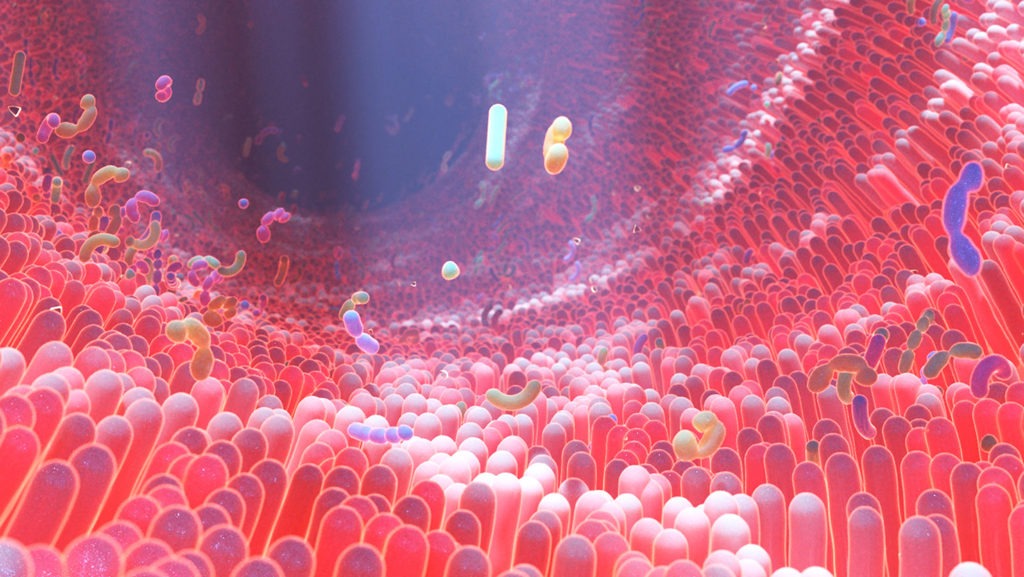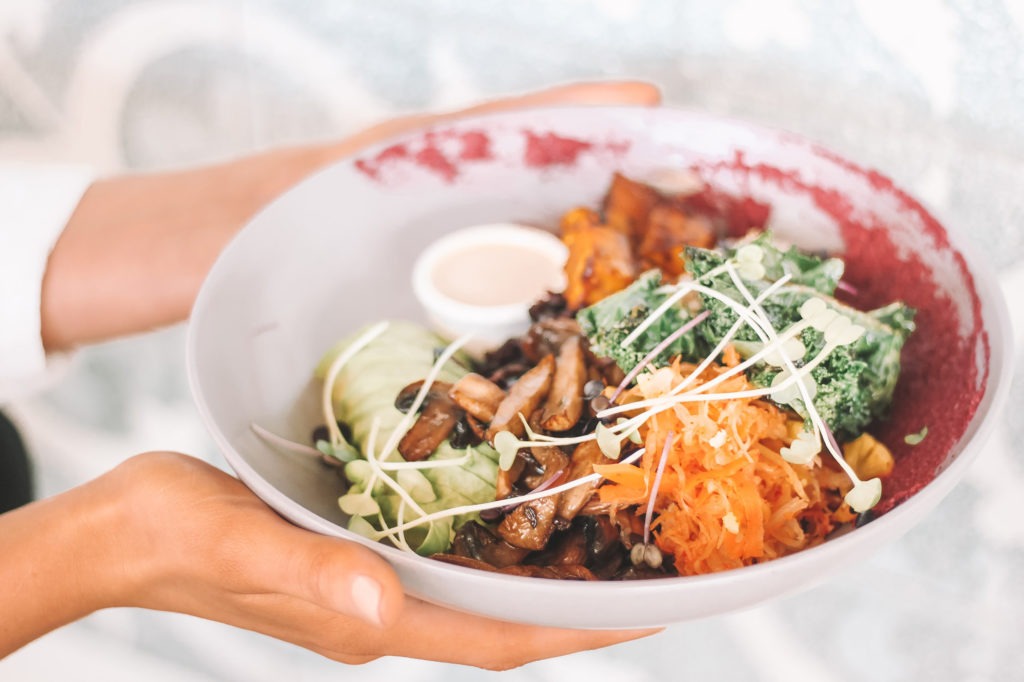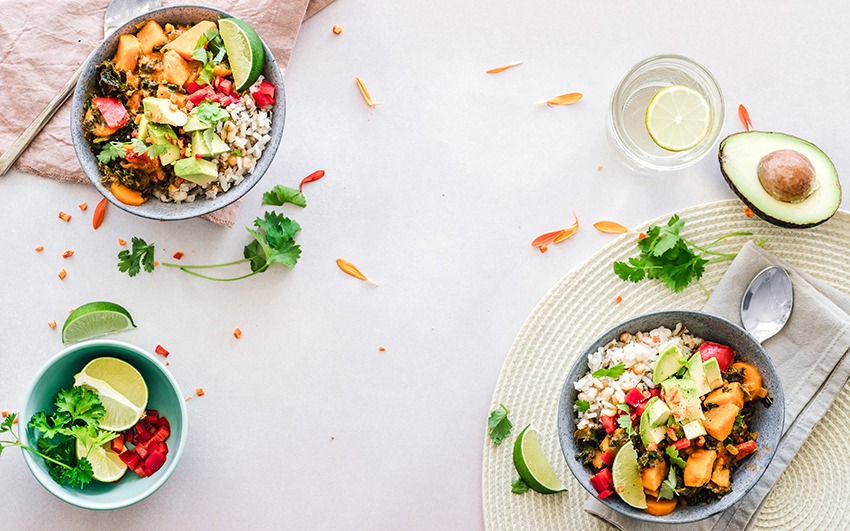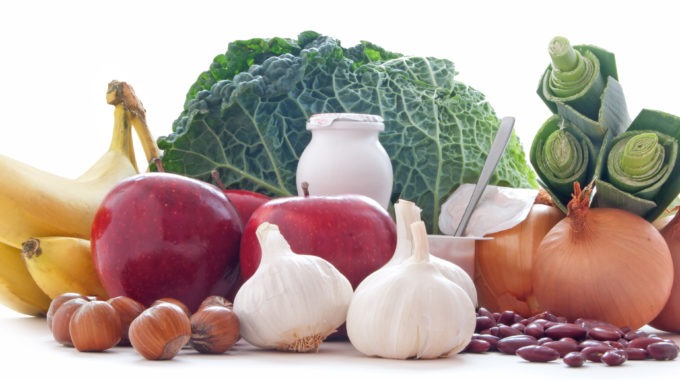Eat your way to a healthy microbiome
Adjusting to our new COVID normal has made us all very aware that some microbes can be very dangerous. But most viruses, bacteria, yeast and fungi are our friends, not our foes. You can find them everywhere. In and on plants, animals, water and soil – and within each of these, microbes exist in their own “community” known as a microbiome.
While they might be invisible to the human eye, microbiomes play an essential role in maintaining a healthy global ecosystem. Microbiomes in the ocean store carbon and produce the oxygen we breathe. Microbes in the soil support plant growth and can help to reduce the negative environmental impacts of food waste. So important are these teeny tiny toilers, they even have their own special day. World Microbiome Day was founded in 2019 to raise awareness of how microbes can contribute to a healthy, sustainable future.

Your microbiome and your health
Trillions of microbes also live in and on our bodies, including on our skin and in our mouths and lungs. But the most abundant and diverse microbiome lives in the human gut. As well as helping you to digest food, your gut microbiome benefits your immune system, produces vitamins, can influence heart health and may even play a role in your psychological wellbeing through what’s known as the gut-brain axis.
A healthy gut microbiome contains many different strains of “good” bacteria, each playing its unique part. Like a coral reef or a rainforest, there’s a staggering diversity of life in this microscopic ecosystem. It’s highly personalised, too – your microbiome is unique to you, just like your fingerprint. But just like any other ecosystem, if things get out of balance, there can be trouble. So how do you keep your microbiome healthy?

Your gut health is in your hands
With every meal, you influence the microbes in your gut. Your food choices affect the balance of your gut bacteria, potentially giving you more of some bacterial strains and less of others. This can lead to to knock-on effects for your metabolic health and immune system. But this is actually good news in many ways. It means you have the power to build a more balanced and healthy microbiome by changing your eating habits.

A microbiome-friendly diet
Eating for a healthy gut is pretty much the same as eating for a healthy heart and mind or to maintain a healthy weight. Your focus should be on whole foods, including plenty of fruits, vegies and whole grains. But most Australians aren’t eating anywhere near enough fruit and veg. Meanwhile, ultra-processed foods – which have been altered by chemicals like emulsifiers, preservatives and colourings – now make up more than 30 percent of our average diet. In mice studies, the chemicals in ultra-processed foods have been found to adversely alter the gut microbiota. If you’re keen to improve your microbiome, try eating:
1. Less processed food
2. A wide variety of different foods from each of the five food groups
3. More prebiotic foods
4. More foods rich in beneficial bacteria
Prebiotics are a type of fibre that your body can’t digest but your microbes love to munch on. Foods high in prebiotics include many fibre-rich fruits such as bananas and stone fruit; vegetables like onion, garlic, leeks, asparagus and beetroot; legumes like chickpeas and lentils; and grains such as wheat bran, whole oats and barley.
Certain foods contain live bacteria that replenish your microbial ecosystem. Beneficial bacteria are present in many fermented foods like yoghurt (made with live cultures), sauerkraut, tempeh, sourdough bread and kombucha.

It’s a lifestyle thing
So, in a nutshell (or a gutshell), simply eating a balanced diet filled with fibre-rich and fresh, unprocessed food is an easy way to support a healthy gut microbiome. But there are other lifestyle factors that can also play a part in gut health. Here’s a quick checklist:
1. Regular exercise has been found to improve the balance of good gut bacteria.
2. Drinking plenty of water keeps the lining of your intestines healthy and aids digestion.
3. Too much alcohol can reduce the diversity of bacteria in your gut. It causes inflammation and can throw your gut microbiome off balance.
4. Just like the rest of your body, your gut follows your body’s natural circadian rhythm. Not getting enough sleep or eating late at night can disrupt this rhythm, impacting gut health.
To find out more about the human microbiome, how it can influence your health and how you can keep your gut healthy, head to Life-Space.
This article was written by Giaan Rooney, Olympic gold medal-winning athlete and Life-Space Probiotics ambassador, and has been edited for style and clarity.









